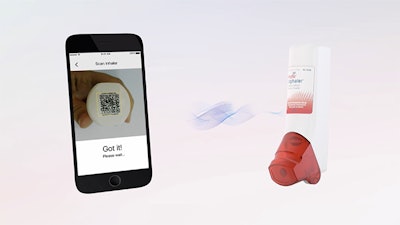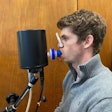
Digital inhalers could be a new tool in predicting impending acute exacerbations of COPD, according to a new study.
The study, “Use of a Digital Inhaler to Assess COPD Variability and Identify Impending Acute COPD Exacerbations: A Pilot Study,” was published in Chronic Obstructive Pulmonary Diseases: Journal of the COPD Foundation.
The digital inhaler used in the study — ProAir Digihaler — measured peak inspiratory flow, inhalation volume, inhalation duration, time to peak inhalation and inhaler use. Researchers used this data to determine whether it could identify a possible early-stage exacerbation.
According to the study, the digital inhaler provided an objective measure of rescue inhaler use. In addition, researchers wrote, “Increases in use herald an impending acute exacerbation of COPD (AECOPD).”
While the ProAir Digihaler is not currently available for use in the United States, the researchers noted that the pilot study “highlights the utility and importance of objective digital inhaler short-acting beta2 agonist (SABA) data in COPD, especially preceding an AECOPD.”
The study’s lead author, M. Bradley Drummond, MD, professor of medicine in the Division of Pulmonary Diseases and Critical Care Medicine at the University of North Carolina, Chapel Hill School of Medicine, said in a news release that the study shows the need for further research into digital inhalers.
“While this study examined a small group of participants, the remote monitoring data showed people experienced significant decreases in the amount of air they inhaled and how long that inhalation lasted in the approximately two weeks prior to experiencing an exacerbation,” he said. “As these remote monitoring technologies get more advanced, we can help both patients and health care providers identify exacerbations earlier, which allows us to provide better exacerbation management and improve health outcomes.”






















